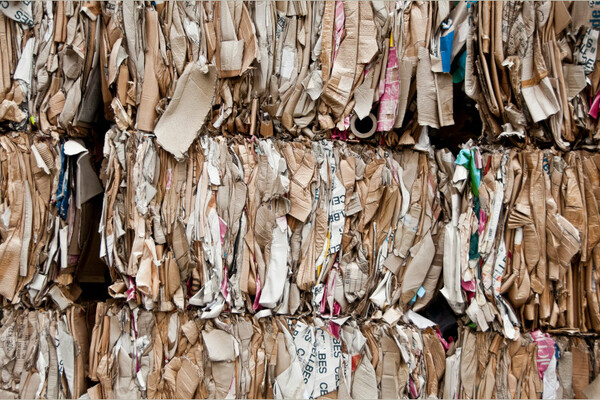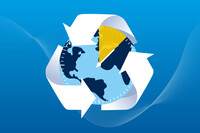“Made for Recycling”: Interseroh+ analyses paper packaging according to new CEPI standard
Cologne. How sustainable is paper packaging? This is a currently much-discussed question – and in many cases, it can only be answered clearly with a targeted recyclability analysis. To make things easier for manufacturers and distributors, environmental services provider Interseroh+ is expanding its established “Made for Recycling” testing portfolio and is now offering assessments for paper packaging according to a new method from the Confederation of European Paper Industries (Cepi).
The recycling specialists at Interseroh+ are among the first to offer an assessment of paper packaging according to the new CEPI methodology. “With the packaging analysis ‘Made for Recycling’, our customers show that they evaluate the recyclability of their packaging according to highest standards.”, explains Markus Müller-Drexel, Chairman of the Executive Board at Interseroh+. “We are constantly developing our range of services, and in doing so we aren’t just keeping an eye on the latest scientific findings and the requirements of the future, we are also considering the actual conditions surrounding packaging recycling in particular.”
With the scientific “Made for Recycling” assessment standard, which was developed together with the bifa environmental institute and confirmed by the Fraunhofer Institute for Process Engineering and Packaging IVV, this is an area in which Interseroh+ has in-depth know-how proven methods in packaging evaluation and optimisation.
What is behind the Cepi-method?
The highly-developed methodology for assessing the recyclability of paper packaging was published by Cepi in October 2022. It was developed by the industry association within the 4evergreen Alliance – an association of companies from across the value chain for fibre-based packaging. Their goal is to increase the rate of recycling to more than 90 per cent by 2030 and establishing a uniform assessment standard in Europe. The Cepi-method is considered to be especially practical. The differences from previous standards such as the PTS method (PTS-RH 021:2012), for example, are to be found in the differentiation between coarse and fine rejects, the determination of macro-stickies and the shorter dissolving time in the pulper.
The adjacent photo can be freely used provided that “Interzero” is cited as the source.



![[Translate to English - Englisch:] [Translate to English - Englisch:]](/fileadmin/_processed_/1/4/csm_230606-AGA-Tridi-Indonesia-PET-recycling_e3dcd2ad90.jpg)
